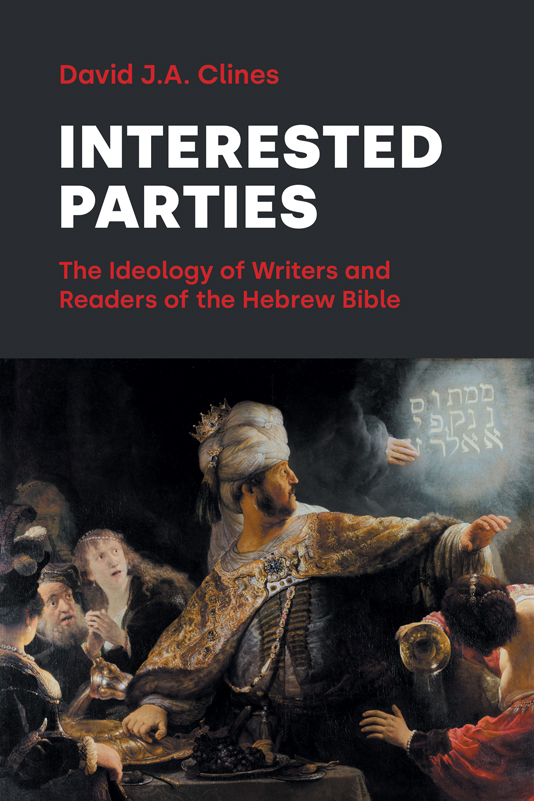Interested Parties: The Ideology of Writers and Readers of the Hebrew BIble
Price range: £17.50 through £50.00
The focus is equally on the ideologies of the writers of the Hebrew Bible, who brought the text into being, and on the ideologies of its readers, who are being shaped by the text at the same moment that they are shaping it in their own image.
This is a reprint of the original 1995 edition.
There is a twin focus in this volume. The title of a keynote essay—‘Why Is There a Song of Songs, and What Does It Do to You If You Read It?’—hints at it. The focus is equally on the ideologies of the writers of the Hebrew Bible, who brought the text into being, and on the ideologies of its readers, who are being shaped by the text at the same moment that they are shaping it in their own image.
Uncovering the ideologies of writers are readers is the project of this book, calling for a step beyond the usual scholarly goal of understanding—to a practice of the art of critique.
Among the other chapters in this challenging book are:
• The Ten Commandments: Reading from Left to Right
• Metacommentating Amos
• Haggai’s Temple, Constructed, Deconstructed and Reconstructed
• David the Man: The Construction of Masculinity in the Hebrew Bible
• Psalm 2 and the MLF (Moabite Liberation Front)
• God in the Pentateuch: Reading against the Grain
This is a reprint of the original 1995 edition.


C.S. Rodd, Expository Times –
Everything which David J.A. Clines writes is fascinating, often provocative, always inviting further thought, and frequently setting the reader down new paths of inquiry. It is especially good, therefore, to have eleven of his essays and papers in Interested Parties. The titles are as intriguing as the contents.